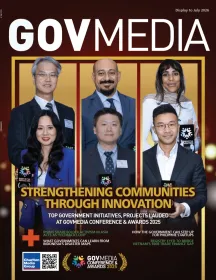How the government can step up for Philippine startups
Experts call for funding, policy reforms, and infrastructure to boost innovation.
Despite the passage of the Innovative Startup Act in 2019, Philippine startups still face major hurdles such as funding gaps, skill shortages, and weak infrastructure beyond Metro Manila.
“One of the big, biggest barriers or challenges that Filipino startups face today is the lack of access to capital and investment,” said Engr. Edward Paul Apigo, Senior Science Research Specialist at DOST-PCIEERD. “Even if we have the Innovative Startup Act or the RA 11337, there's still limited funding that the government is able to provide.”
Subho Pati Sanyal, Co-Founder and COO of the Nistula Group of Companies, argued that the country’s startup ecosystem is rich with potential but hamstrung by execution gaps. “The Philippines is sitting on a startup gold mine, and the excavation tools are yet to reach,” Sanyal said. “Infrastructure dysfunction, policy paralysis, and funding concentration in Metro Manila are the biggest issues.”
He also warned of a “talent drain,” where 62% of startups struggle to hire top tech talent due to migration or clustering into fintech. “Seventy percent of Filipinos still prefer job security. Entrepreneur is not a career yet,” he added.
David Bonifacio, Managing Partner and Head of Philippines at regional VC firm TNB Aura, echoed these concerns. “The Philippines can improve in execution. There has to be infrastructure, a very top-down approach to studying the landscape,” he said. “Then the intention has teeth. Because people know, ‘If I invest in the Philippines, I benefit this way.’”
Sanyal emphasised the need for ecosystem mapping, streamlined grants, and digitised compliance processes. “Let the government be the first customer. Why doesn’t the government mandate 10% of innovation procurement to early-stage Filipino startups?” he asked.
Apigo acknowledged that the government has made strides, such as forming a steering committee under the Startup Act. But he also stressed the need to harmonise and communicate these programs more effectively.
“There should be decentralisation of innovation zones,” said Sanyal, who emphasised that the current concentration in Metro Manila leaves startups elsewhere struggling.
“It should come as a policy from the government for educational institutions that at that level, entrepreneurship should be given the face of being a career,” Sanyal added, advocating for early exposure and mindset shift among students.










